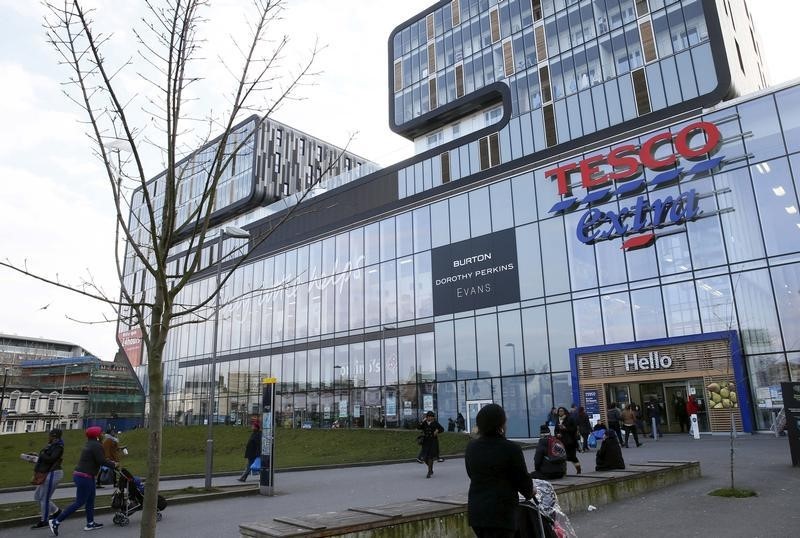LONDON (Reuters) - Prices in British shops fell at a slower pace in October, potentially paving the way for outright rises early next year as the effect of a weaker currency is felt, the British Retail Consortium said on Wednesday.
Last month a dispute between Britain's biggest supermarket, Tesco (L:TSCO), and Unilever (L:ULVR) hit the headlines as the manufacturer of brands such as the pungent yeast spread Marmite sought to increase prices by 10 percent due to sterling's fall.
Figures from the BRC showed food prices overall in October were 1.2 percent lower than a year earlier, compared with a 1.3 percent decline in the year to September.
Looking at all goods, prices were 1.7 percent down on the year in October, compared with a 1.8 percent drop in September. This was the smallest decline since July.
The BRC said that so far the weaker pound - which has lost almost a fifth of its value against the dollar since Britain's June 23 vote to leave the European Union - was not leading to higher prices, but that this was certain to change soon.
"It is inevitable that imported inflation will begin to make its mark and we would expect to start to see this effect coming through in the first quarter of 2017," BRC chief executive Helen Dickinson said.
The Bank of England is likely to revise up its inflation forecasts when it publishes a quarterly update on Thursday.
Separately, the Confederation of British Industry cut its forecast for economic growth next year to 1.3 percent from 2.0 percent at the time of its last forecast in May, a month before the EU referendum.
"Uncertainty means that business investment will remain flat next year before contracting in 2018, and downside risks to our forecasts are even more acute," CBI chief economist Rain Newton-Smith said, adding inflation was also a worry for retailers.
This growth forecast is still brighter than most economists polled by Reuters, who last month on average predicted that growth would slow to 0.8 percent next year.

The National Institute of Economic and Social Research also released new forecasts for Britain's economy. It anticipated economic growth of 1.4 percent in 2017, compared with 1 percent in its forecast three months ago.